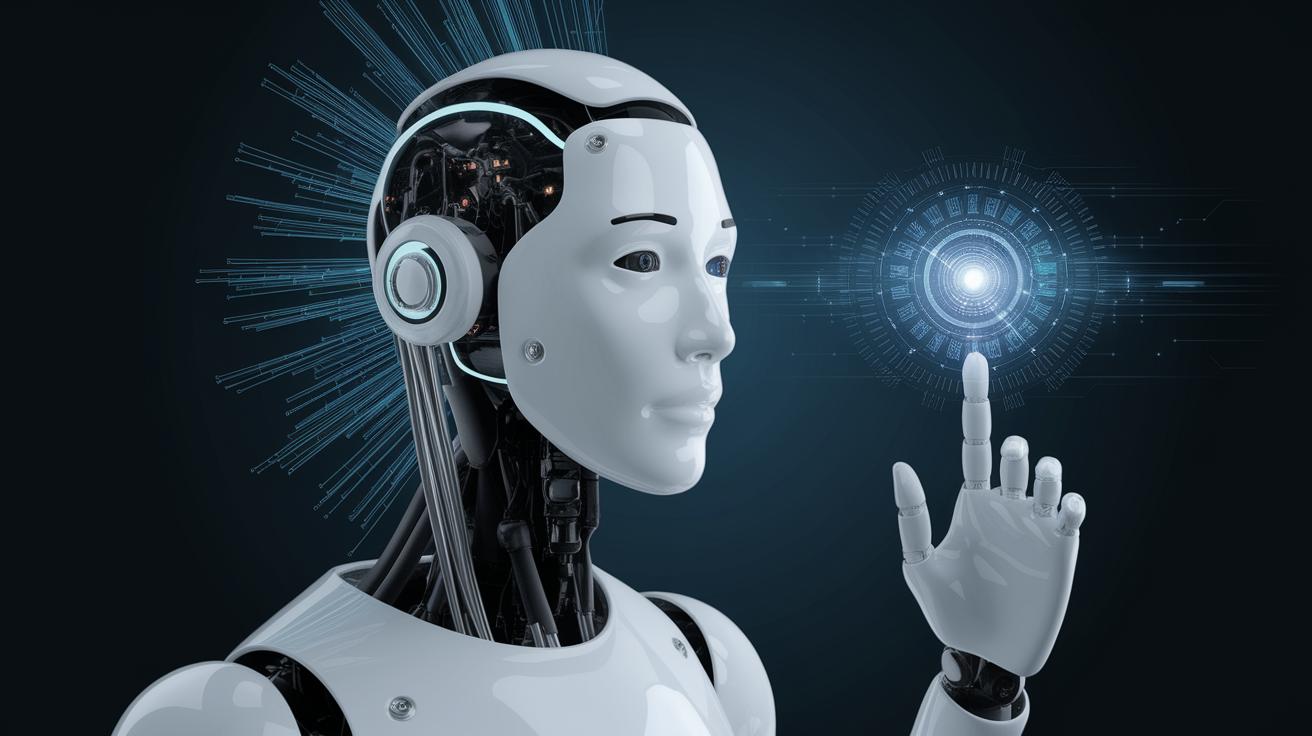How to Engage with Ethical AI Development
As artificial intelligence technology rapidly progresses, the necessity to engage with its ethical development becomes increasingly crucial. This blog post delves into the world of responsible AI development, exploring its definition, importance, and underpinning principles. Furthermore, we will explore practical ways to promote responsible AI practices and stay in tune with the evolving best practices in the AI industry. The article will also highlight real-world examples of successful responsible AI initiatives, discuss the role of standards in guiding ethical AI, and outline the potential benefits of conscientious AI development. By acknowledging the importance of ethical AI, this guide serves as a comprehensive resource for engaging with AI development responsibly.
Table of contents
-
What is responsible AI?
-
Why is responsible AI important?
-
What are the principles of responsible AI?
-
Promoting responsible AI practices
-
Keeping up with AI best practice
-
Responsible AI: examples of success
-
The standards approach
-
Reaping the rewards
-
Sign up for email updates
What is responsible AI?
Responsible AI refers to the development and deployment of artificial intelligence systems in a way that is ethically sound, transparent, and fair. This involves creating AI technologies that are designed to enhance human capabilities rather than replace them, operating within the boundaries of law and moral standards. It encompasses a commitment to develop AI systems that are accountable, polite, and aligned with societal values.
The concept of responsible AI is underpinned by the idea that technology should contribute positively to society, ensuring that AI systems uphold people’s rights and freedoms. As AI becomes increasingly integrated into our daily lives, ensuring its responsible deployment is paramount to prevent potential harms and biases that could exacerbate existing inequalities or introduce new ethical challenges.
Why is responsible AI important?
Responsible AI is critically important as it helps to ensure that AI systems do not perpetuate or exacerbate existing biases and discriminations. With the growing power and influence of AI, unchecked algorithms can lead to unintended societal impacts. Ethical oversight is vital to prevent harm and promote technologies that are aligned with human values.
Moreover, responsible AI builds trust in technology, which is crucial for its widespread adoption and acceptance. As AI systems gain more autonomy, particularly in sensitive sectors like healthcare, finance, and criminal justice, maintaining public confidence through ethical practices is essential to drive innovation while safeguarding societal interests.
What are the principles of responsible AI?
The principles of responsible AI typically encompass a range of key ethical guidelines designed to ensure the fair and equitable use of artificial intelligence. Fairness is paramount, aimed at preventing AI from exacerbating biases or inequalities. This includes designing algorithms that are inclusive and representative of diverse populations.
Transparency and explainability are also crucial, where AI systems should be understandable and their decision-making processes clear to users. Additionally, accountability is fundamental; entities deploying AI systems should be able to take responsibility for their creations to ensure they operate ethically and legally. Lastly, privacy is a core principle focusing on protecting individual data and maintaining confidentiality within AI processes.
Promoting responsible AI practices
Promoting responsible AI practices involves both internal and external commitments by organizations developing AI technologies. Internally, companies can devise comprehensive AI ethics policies and implement multidisciplinary teams to oversee the ethical implications of AI projects. This often requires stakeholders from diverse fields such as ethics, law, and technical development working collaboratively.
Externally, engaging in industry-wide collaborations and contributing to public discourse on AI ethics is beneficial. By participating in forums and partnerships, organizations can stay informed about the latest ethical standards, share best practices, and collectively address the challenges of implementing responsible AI. This collaborative ecosystem fosters accountability and supports the evolution of ethical AI development.
Keeping up with AI best practice
Staying updated with AI best practices is essential for any entity involved in AI development. Regularly participating in industry conferences, workshops, and training sessions ensures that AI practitioners remain informed about new technologies, ethical considerations, and regulatory guidelines. This continued professional development is crucial in maintaining the relevance and responsibility of AI systems.
Moreover, incorporating feedback mechanisms and user studies can help in understanding the real-world implications of AI systems. These insights can drive iterative improvements and ensure that AI applications remain ethically sound and user-centric. Organizations should also consider engaging with academia and research bodies to stay at the forefront of ethical AI innovation.
Responsible AI: examples of success
Examples of successful responsible AI initiatives abound, demonstrating that ethical AI development is both achievable and beneficial. For instance, some firms have developed AI tools for healthcare diagnostics that prioritize transparency and explainability, allowing medical professionals to understand and trust AI-driven insights.
On a different front, companies have implemented ethical AI audits, regularly assessing their systems for bias, fairness, and compliance with societal values. These audits help to identify areas for improvement and reinforce the commitment to ethical AI deployment. By showcasing these examples, organizations can inspire further responsible AI practices and innovations.
The standards approach
The development of standards for responsible AI plays a pivotal role in guiding organizations towards ethical AI production. Standards provide a framework for ensuring consistency, quality, and accountability in AI systems. They help in establishing baseline criteria against which AI technologies can be evaluated for ethical conformity.
International bodies and industry groups have been working on drafting and refining these standards, aiming to provide comprehensive guidelines that address various ethical concerns around AI. By adopting these standards, organizations not only commit to ethical practices but also contribute to a global movement towards responsible AI, building trust and credibility in their AI offerings.
Reaping the rewards
Organizations that actively engage with ethical AI stand to gain numerous benefits. By prioritizing responsible AI development, companies can enhance their reputation and build trust with consumers and stakeholders. This trust can lead to increased consumer loyalty and the opening of new market opportunities as ethical considerations become more important in purchasing decisions.
Moreover, responsible AI can drive innovation by fostering a collaborative environment where ethical considerations lead to new products and services. By proactively addressing ethical challenges, organizations can safeguard against potential legal issues and maintain competitive advantages in markets increasingly conscious of ethical practices.
Sign up for email updates.
Stay informed about the latest developments in ethical AI by subscribing to our email updates. By signing up, you’ll receive curated content, news, and insights to help you navigate the dynamic landscape of responsible AI development, ensuring your organization stays ahead in adopting best practices and innovative solutions.
Summary of main points
| Section | Content |
|---|---|
| What is responsible AI? | Explore the definition and significance of developing AI that is ethically sound and fair. |
| Why is responsible AI important? | Discuss the importance of ethical AI practices in building trust and preventing biases. |
| What are the principles of responsible AI? | Examine the core principles, including fairness, transparency, accountability, and privacy. |
| Promoting responsible AI practices | Cover strategies for implementing responsible AI internally and collaboratively. |
| Keeping up with AI best practice | Strategies for remaining updated on AI developments and ethical guidelines. |
| Responsible AI: examples of success | Highlight successful cases that demonstrate the feasible implementation of ethical AI. |
| The standards approach | Overview of adopting international standards to guide responsible AI development. |
| Reaping the rewards | Discuss the advantages of ethical AI practices for organizations. |
| Sign up for email updates | Encourage reader engagement through subscription to newsletters. |


